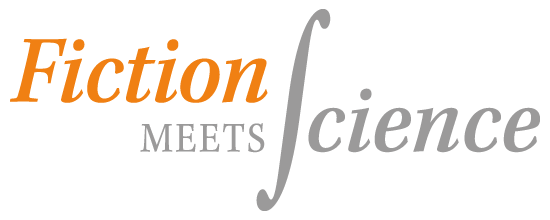4b. Utopian and dystopian narratives: a sociological perspective
In Western societies during the final decades of the 20th century, naïve belief in scientific progress as a universal solution to all human problems gave way to growing concerns about the uncontrollable development of scientific research, its applications, and its economic exploitation. Sociologists observed that such preoccupations were having profound effects on society, and concepts of a knowledge-based “post-industrial society” (Bell 1973) took on new meaning and began to give way to the notion of a “risk-society” (Beck 1986). Our sociological analysis proceeds from two basic observations: 1) the emergence and proliferation of contemporary science novels, as well as a boom in serious science-based speculative fiction (Harris-Fain 2005), coincides with this increase in societal awareness of the risks associated with scientific research; and 2) public discourse on science is not limited to the straightforward communication of scientific knowledge and new discoveries, but is rather imbued with society's hopes and fears.
The novel has long served as an arena for focusing on societal hopes and fears, which have been played out to their extremes and made particularly apparent in the utopian and dystopian stories of speculative fiction. In this project, we investigate the recent wave of science novels for utopian and dystopian narratives and consider these, alongside those found in contemporaneous speculative literature, in the context of the wider public discourse on science. Here we define a narrative as dystopian or utopian if it extrapolates from current social issues and scientific possibility or uncertainty to some alternative form of human co-existence (Levitas 1990; Vieira 2010). This is distinct from literary definitions of the utopian and dystopian genre in that the alternative society may or may not make an appearance in the text. In the science novel Mendel's Dwarf (Mawer 1997), for example, readers see the specter of a near-future society dominated by neoliberal economic exploitation of genetic research, but the emphasis is on the extrapolation of current issues and that society is never portrayed (Dietze 2012). In Anne Patchett's State of Wonder (2011), a pre-industrial Amazonian utopia takes center stage in the "risk society's" experiments, and readers are left to imagine the utopic and dystopic possibilities in both societies. In Richard Powers's Generosity. An Enhancement, we are led to imagine, but never see, a society in which parents can genetically select for happy offspring. In recent speculative works like those of Margaret Atwood (2003, 2010) or Kazuo Ishiguro's Never Let Me Go (2005), on the other hand, utopian/dystopian societies are described in intimate detail, but we are left to extrapolate backwards to the present-day social issues and scientific possibilities that might have produced them (Mohr 2007). And in Frank Schätzing's contemporary science fiction novel, Der Schwarm (The Swarm), the extrapolation itself is spelled out in the narrative, and the dystopic society appears quite literally in the text.
Research Questions and Methods:
We will employ qualitative content analysis to identify the thematic foci and inner structure of utopian/dystopian narratives in an initial selection of some 10-20 science novels in the FMS database, determined from preliminary readings and plot summaries. What social and scientific issues form the bases for the narratives identified (e.g. global warming, epidemics, genetic screening, nuclear physics, etc.)? Can we detect thematic clusters and how do these compare to those found in utopian/dystopian speculative fiction, both contemporaneous and historically? Are these the same themes we hear about in the broader public discourse (e.g. in news media and politics)? What speculative concepts about human life and/or social organization can we identify?
The inner structure of selected narratives will be investigated in greater depth using the sociology of knowledge approach to discourse (Keller 2011). Here we can gauge how explicit the utopian/dystopian narratives are and what roles the science and scientist characters play in them. How does the speculative literature compare in this regard? Does it paint a different picture than the science novels? A less plausible, substantiated, or differentiated one? Finally, we ask what our cumulative data tell us about societal hopes and fears with regard to science, and what roles these different kinds of literary thought experiments might play in society's efforts to cope with the uncertain future.
